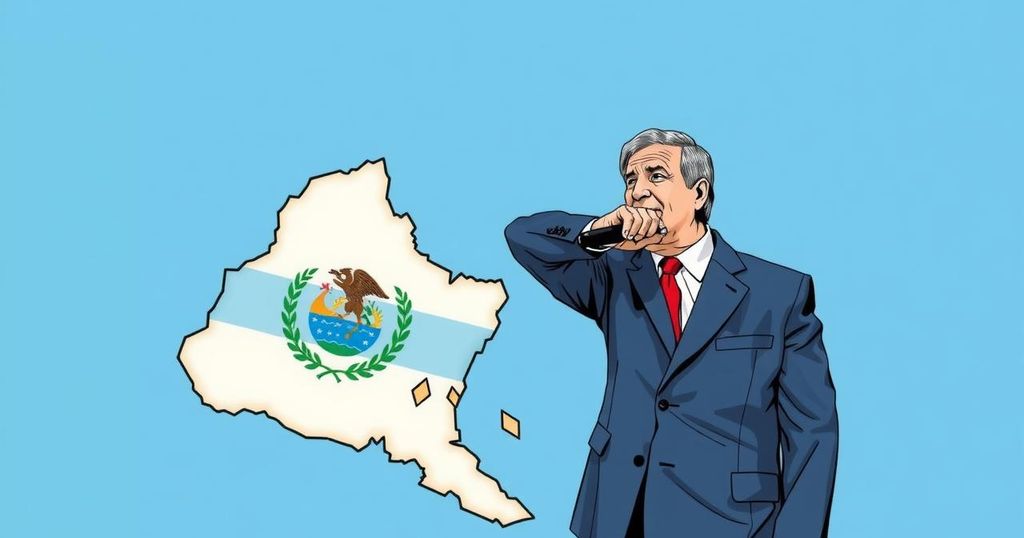Uruguay’s Presidential Runoff: A Tightly Contested Race Awaits
Uruguay prepares for a tight presidential runoff on November 24, featuring center-left candidate Yamandu Orsi against conservative Alvaro Delgado. Both candidates strive to connect with undecided voters amid a backdrop of moderate political tension, with polls suggesting a slender margin may define the outcome. This election reflects local stability within a global trend of shifting voter dynamics, notably influenced by economic conditions.
On November 24, Uruguay will witness a critical second-round presidential election characterized by a close contest between opposition candidate Yamandu Orsi of the center-left Broad Front and continuity conservative Alvaro Delgado. Voters will choose between Orsi, who garnered 43.9% of the first-round vote, and Delgado, who obtained 26.8% but has allied with the conservative Colorado Party, creating a significant voter bloc that previously secured nearly 42% of the votes together in 2019. The atmosphere in Uruguay remains largely uncontentious compared to other regional elections, with both candidates focusing on attracting undecided voters without proposing drastic policy changes. The outcome is anticipated to be closely contested, with recent polls indicating a potential margin as slim as 25,000 votes.
This election follows a notably tumultuous year for global politics, with numerous countries experiencing shifts in power dynamics and voter sentiment. Uruguay’s political landscape, however, has proved relatively stable, contrasting sharply with more polarized elections occurring in Argentina, Brazil, and Mexico. Despite economic challenges such as inflation, many Uruguayan voters appear to favor continuity rather than upheaval, as suggested by the performance of President Lacalle Pou’s administration, which has shaped the contemporary political framework the candidates are navigating. Given the moderate nature of Uruguayan politics, the implications of this election extend beyond domestic factors, reflecting broader trends in global electoral behavior.
The presidential runoff in Uruguay is poised for a potentially narrow outcome as voters confront their preferences in a climate marked by economic stability yet international volatility. With neither candidate presenting radical changes, the election will primarily hinge on their ability to connect with undecided voters and those who supported minor parties in the first round. As voters prepare to cast their ballots, the results will not only determine the nation’s direction but also reveal whether incumbency still holds sway in the face of global discontent with established political parties.
Original Source: www.ndtv.com




Post Comment